Enlarge
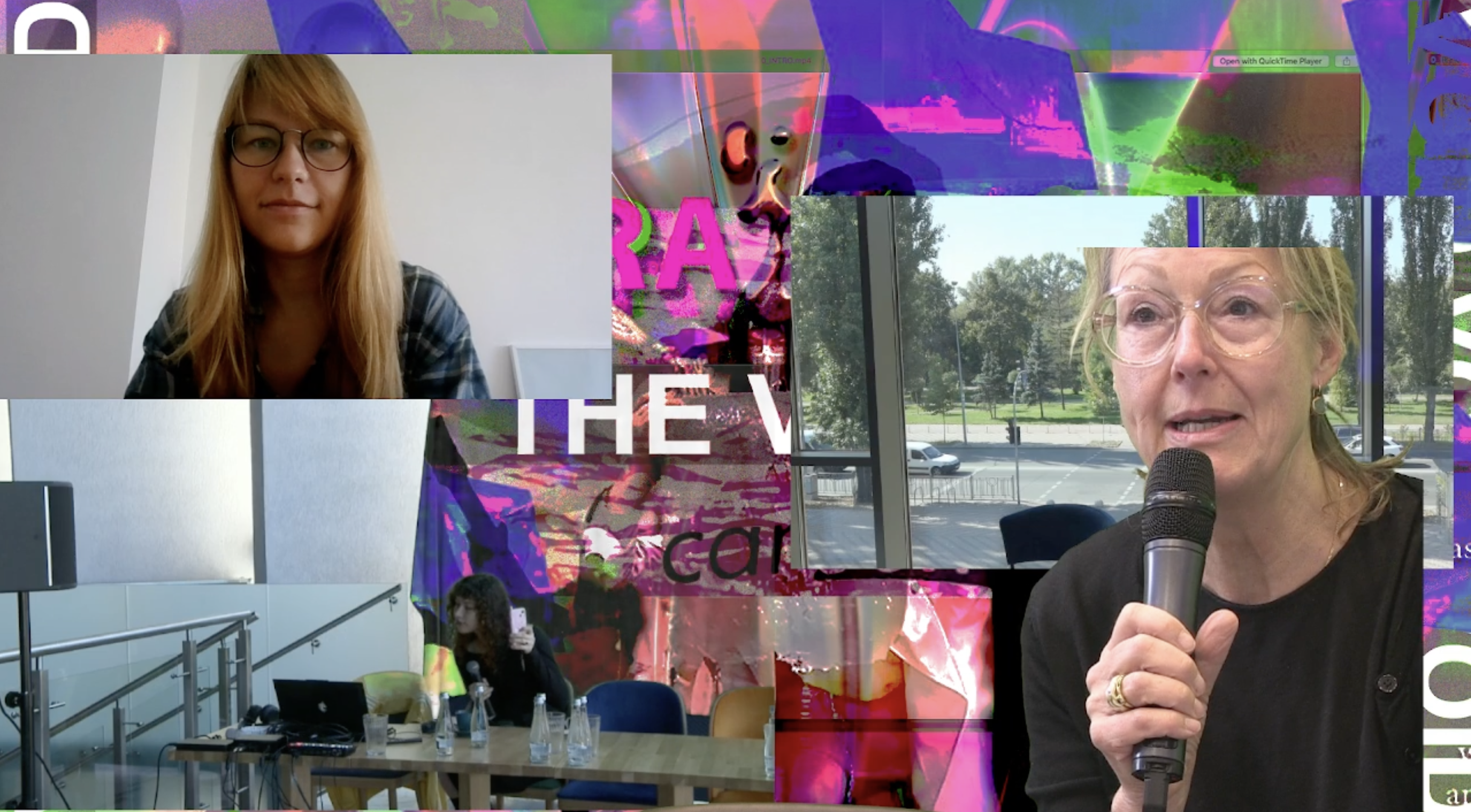
This is an improved report of the live webcast that happened on September 28 2023, between 12.00 and 13.00, at the Amsterdam University of Applied Science. In this live-streaming inspiration session – provided by the Institute of Network Cultures – a live connection was created between INC and THE VOID (Amsterdam), UKRAiNATV (Kraków), and Carbon community (Kyiv).
At that very moment, Roman Dziadkiewicz and Ksenia Mirgorodska – from UKRAiNATV – were visiting the Kyiv partners for the first time. The Carbon member physically present in Kyiv was Vj Yarkus, while Alexandra Khalepa was joining the event from Bratislava. UKRAiNATV members Gleb Dovzhuk and Sofia Reznichenko were connected from Kraków.
Rolinka Kattouw, the current manager of the CoECI Centre of Expertise and host of the event, gave a brief but precise introduction to the conversation. CoECI was the key figure in allocating funds for UKRAiNATV to maintain the Krakow studio on one hand, and to establish a solid workspace for the NGO Carbonon on the other. The audience of viewers in Amsterdam, which is from where we’re writing this report, gathered in a small crowd.
Enlarge
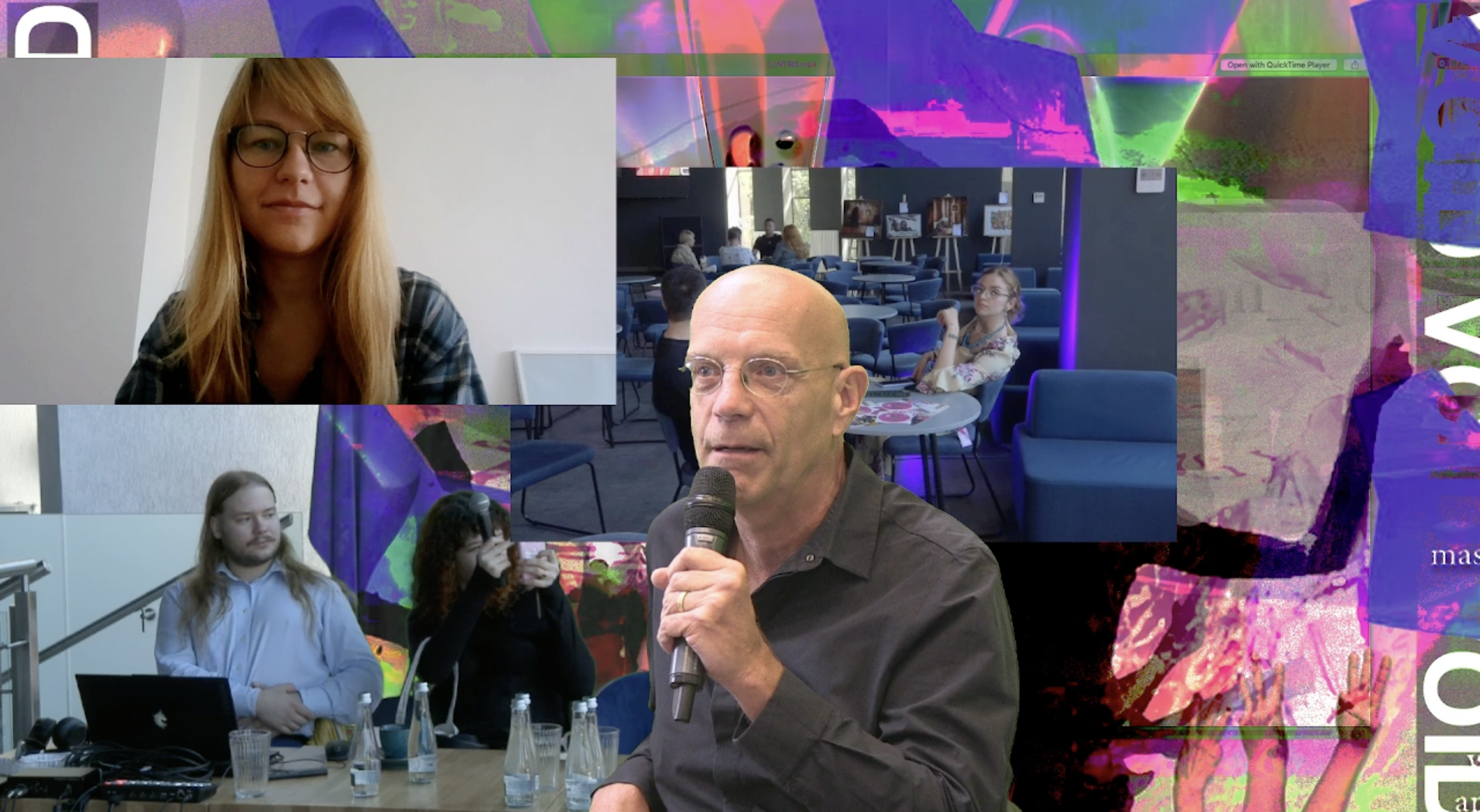
Geert Lovink officially started the conversation, speaking about the background – in this case, curated by Tommaso Campagna from THE VOID – and the multiple sources of visual inspiration of UKRAiNATV, and how its aesthetic goes together with its content. The concept of Stream Art plays with the laggy and colourful elements that are identitarian for UKRAiNATV streams and explores the aspects of digital communication and archiving.
Then Lovink breaks down the concept of ‘hybrid togetherness’ into different layers, such as live conversations and performances with activists, cyber witches, DJs, writers, artists, musicians, and other irregulars as main actors. Another pillar of UKRAiNATV is its growing polynational collaboration with, for instance, INC Amsterdam, Florian Schneider and the Trondheim Academy of Fine Art, the Chick on Speed band, and appearances in San Sebastián, València (Sonar), Berlin (Transmediale), the Locarno Film Festival, Vancouver and many more locations.
He concludes the introduction by stating that among other identitarian aspects, UKRAiNATV adds a pink layer of reality to the existing realms of the quasi journalistic reporting on the Russian invasion of Ukraine. These are the alternative poly-lingual realities that are at stake. A HOPE-CORE utopia in action, which is precisely what the Putin regime is aiming to destroy.
Enlarge
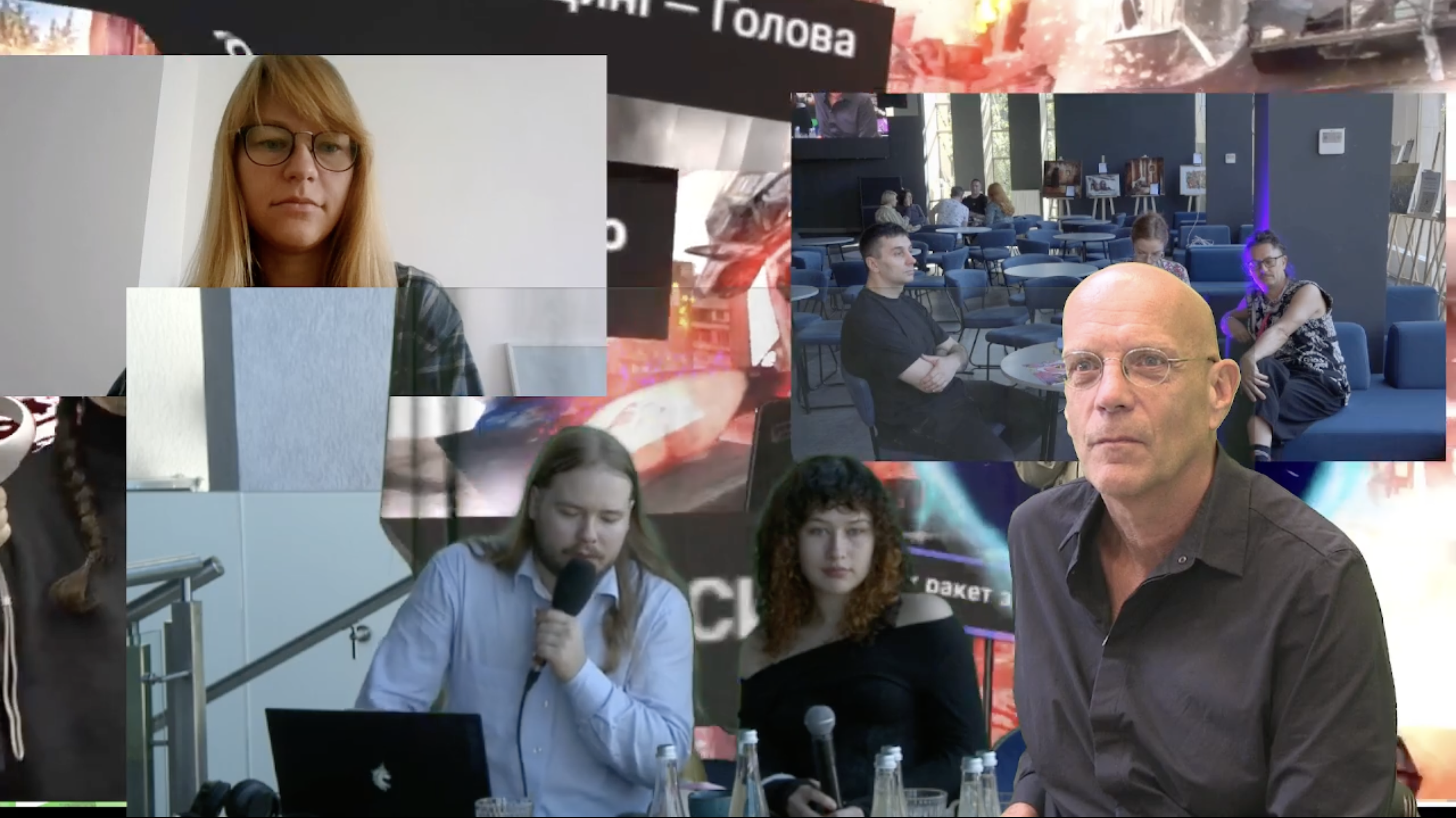
Back in Kraków, UKRAiNATV members Gleb Dovzhuk and Sofia Reznichenko start speaking. They are not in the usual studio, located in Berka Joselewicza 23A, but in a theatre’s press conference room. This is because immediately after this event, they will create another connection with the Kino Krakiv in Kyiv, to discuss a combined event that will take place between Kraków and Ukraine.
The energies of the team are now channelled to make the best out of their visit to Kyiv. This is the first in the collective’s lifetime that they get there, and at a very special moment in history, when a lot of cultural activities are being organized by both Kraków (Unsound festival taking place from the 1st to the 8th of October) and Kyiv (a series of conferences and panels throughout the whole city). Then Gleb announces that at some point a special guest could show up in the call, but in this case from Kyiv. He’s talking about his grandfather, Mykola Noha, who is an artist and the Shostka city mayor.
Enlarge
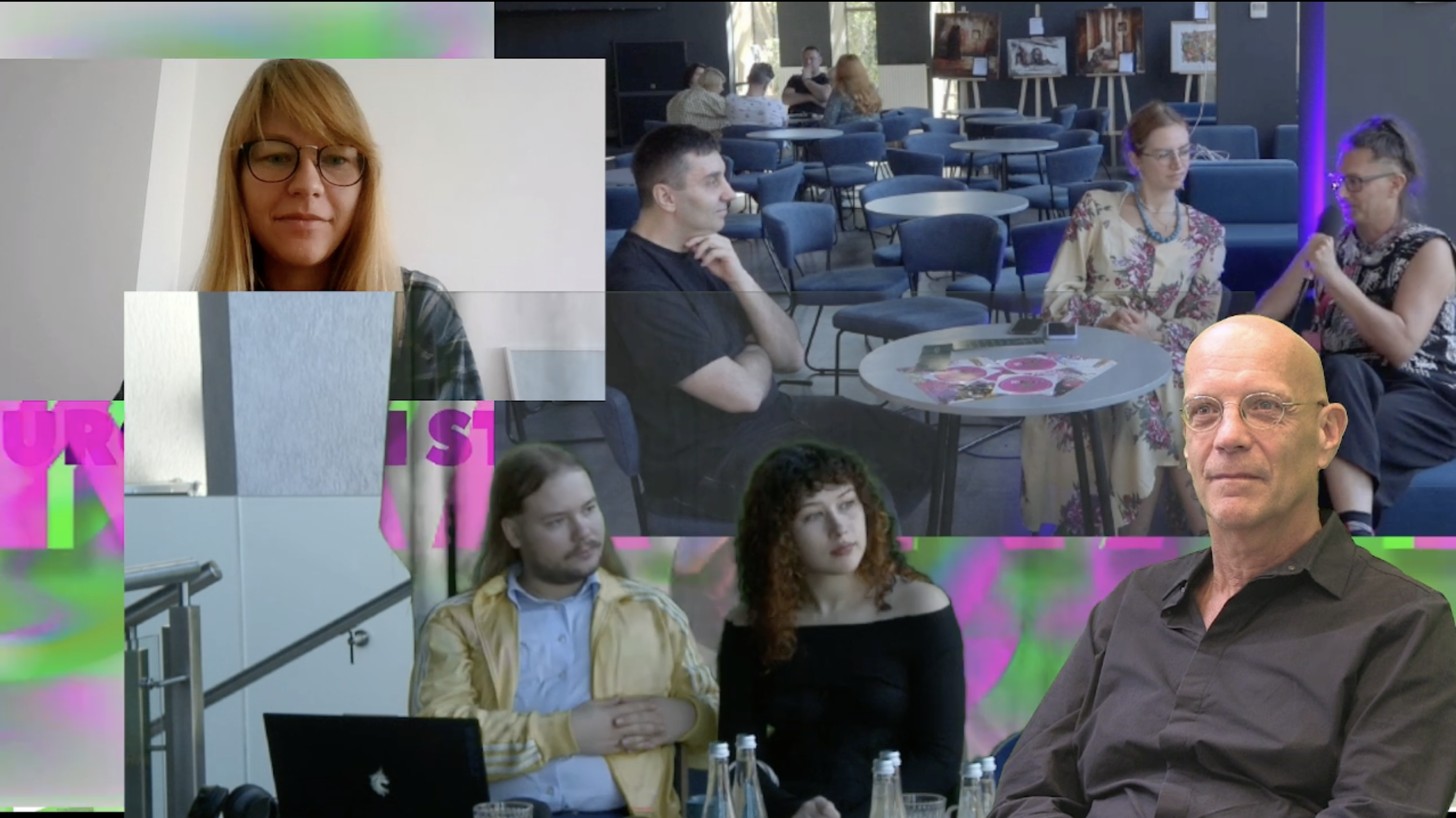
The connection goes now to Kyiv: the camera points at a busy street in the center, and immediately after we are in a big room with a blue table. Sitting on three chairs, we can see Rom Dziadkiewicz, Ksenia Mirgorodska (UKRAiNATV), and Vj Yarkus (Carbon community).
Rom starts speaking about their stay there, the long night of travel, and the difficulties of moving into a country that’s at war. He and Ksenia arrived from Kraków the day before – after a long journey – during which Ksenia got stopped at the border for many hours. Due to her Belarusian passport, they demanded to extra check it, just to finally let her go after the night.
Even if the start of the expedition had some unsettling aspects, the energy of the city made it worth it. The report they do from there is very positive and new inputs for further collaboration with Carbon Community are discussed.
Enlarge
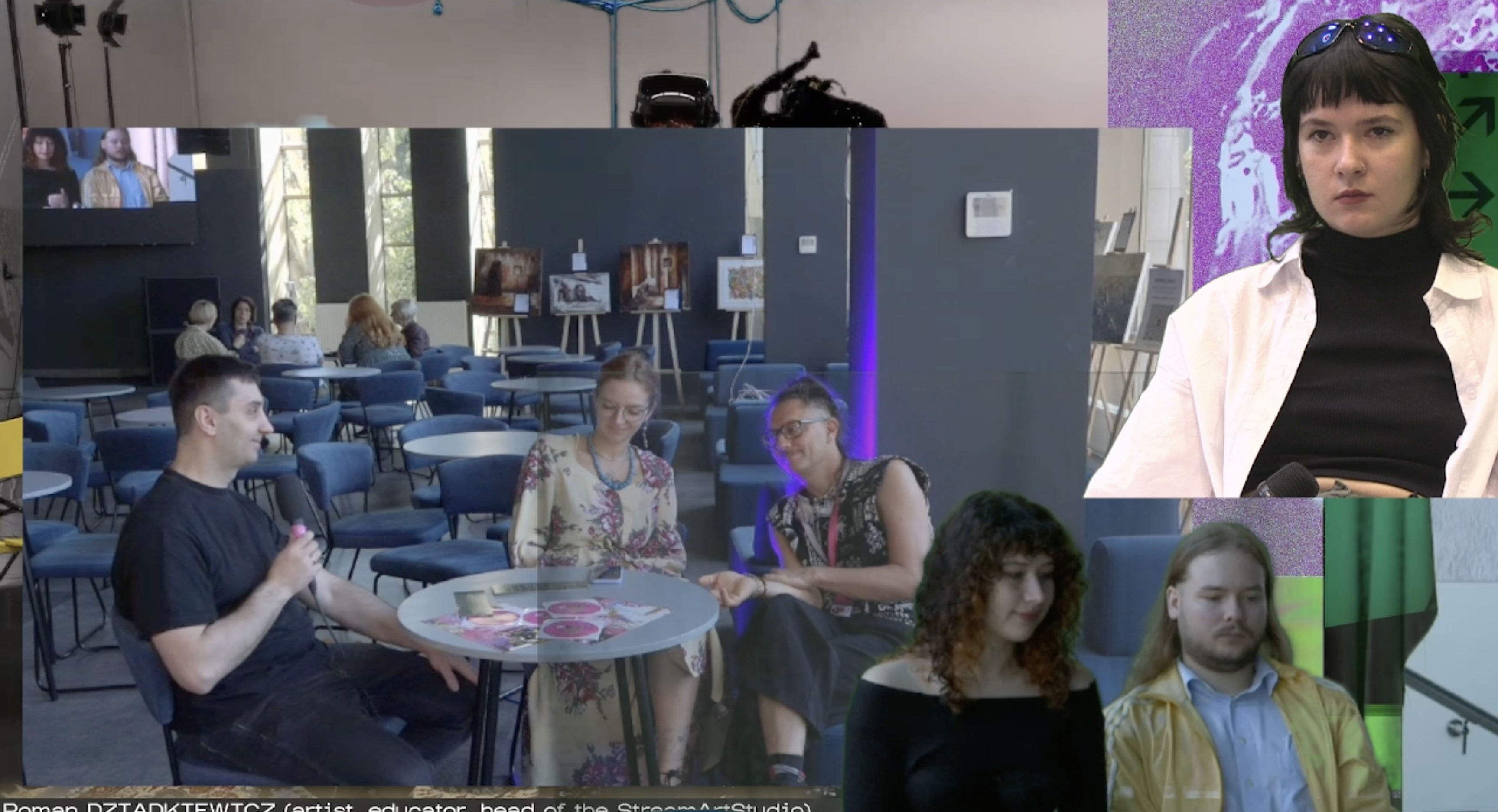
The conversation switches to Vj Yarkus (Carbon community). After his appearance in the workshop at the Going Hybrid! In-between Media Conference in March, this is the second time that he has shown up on livestream in Amsterdam.
From their webpage, we can read: “Carbon is a platform for the synthesis of new media art, sound art, and performative practices. It’s a community art space in a self-organized system of interaction between artists, based on voluntary participation, which affirms creativity as a basis for self-development, synthesizes new contents and trends, unites people around innovative ideas”.
The connection points between Carbon’s practices and UKRAiNATV’s are many, and the fact the collaboration between them and the Amsterdam partners (INC and THE VOID) can be finally officialized brings a breath of fresh air to the crowded room.
Enlarge
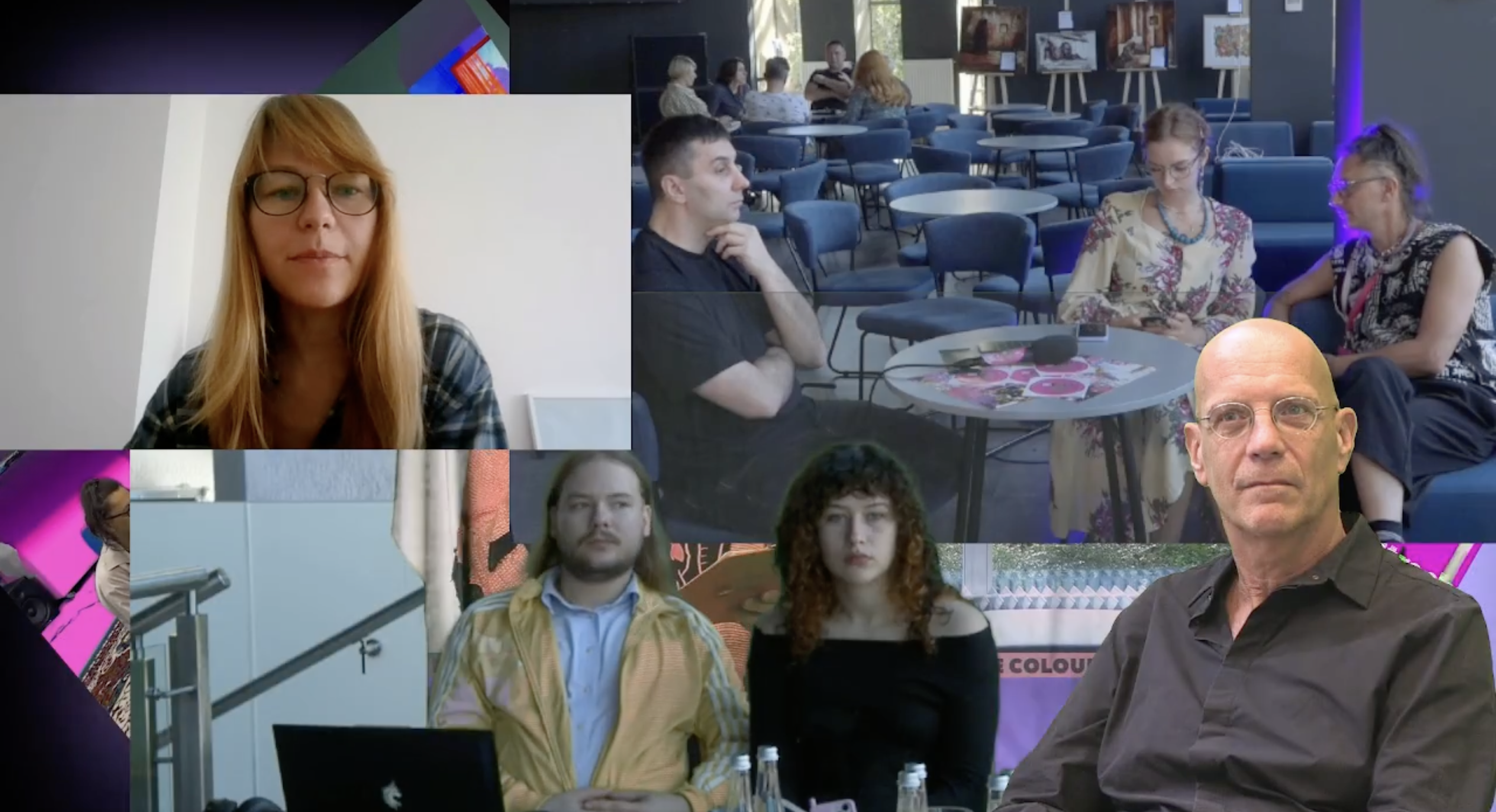
Now Alexandra Khalepa speaks From Bratislava (Slovakia), she is the founder of Carbon Art Residency and curator of the Carbon Community. She organizes labs on new media art, sound art, and performative practices, and since the war started she has been moving throughout Europe while coordinating the Carbon project back in Kyiv.
Other aspects of the Carbon community practices can be found once more in their statement: “In this project, the Carbon platform is considered as a territory of creativity, where everyone weaves their ideas into the common space, saturating it with a set of contents. In essence, this is a model of the Ukrainian cultural and artistic field, where a community of enthusiasts, dreamers, and creative individuals transforms their environment by their own efforts.”
The connection flickers a bit, but it’s soon established again.
Enlarge
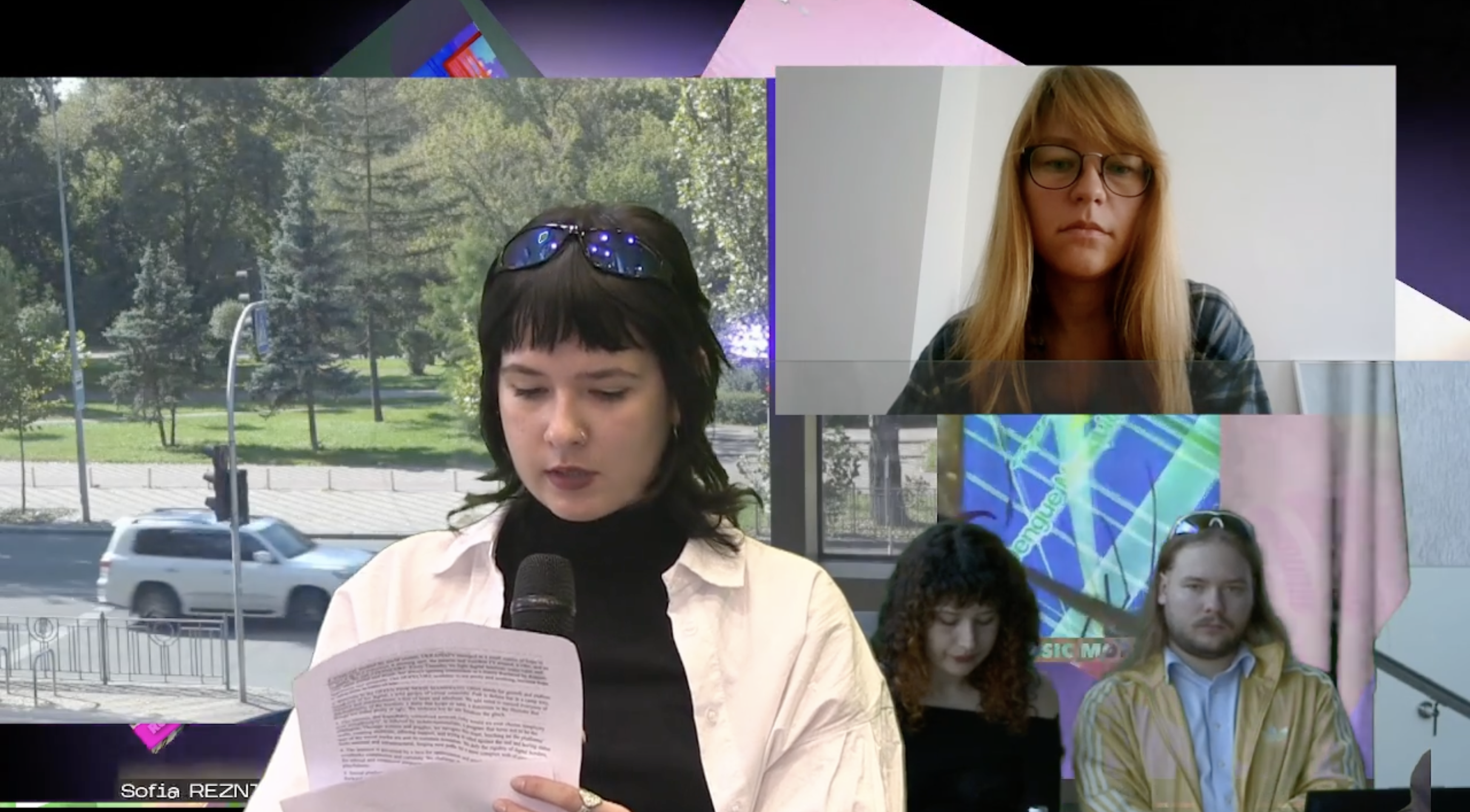
After Alexandra’s intervention, the UKRAiNATV manifesto is read out loud by another member of the team now based in Amsterdam, Giulia Timis. The manifesto contains all the core elements of the project, from its aesthetics, contents, approaches, philosophy, and so on.
All the topics already touched by Geert Lovink at the beginning of the connection are expressed in a very poetic and striking prose, written by Konrad Wojnowski, professor at the Jagiellonian University (Performativity Studies Department) in Kraków and also a member of the team.
For the first time, all the points that are at the base of the collective’s existence are exposed, the vivid language and the images that the sentences evoke represent a milestone in the comprehension of its activities to a wider public, but it’s also a way to fix the teams key points once for all.
Enlarge
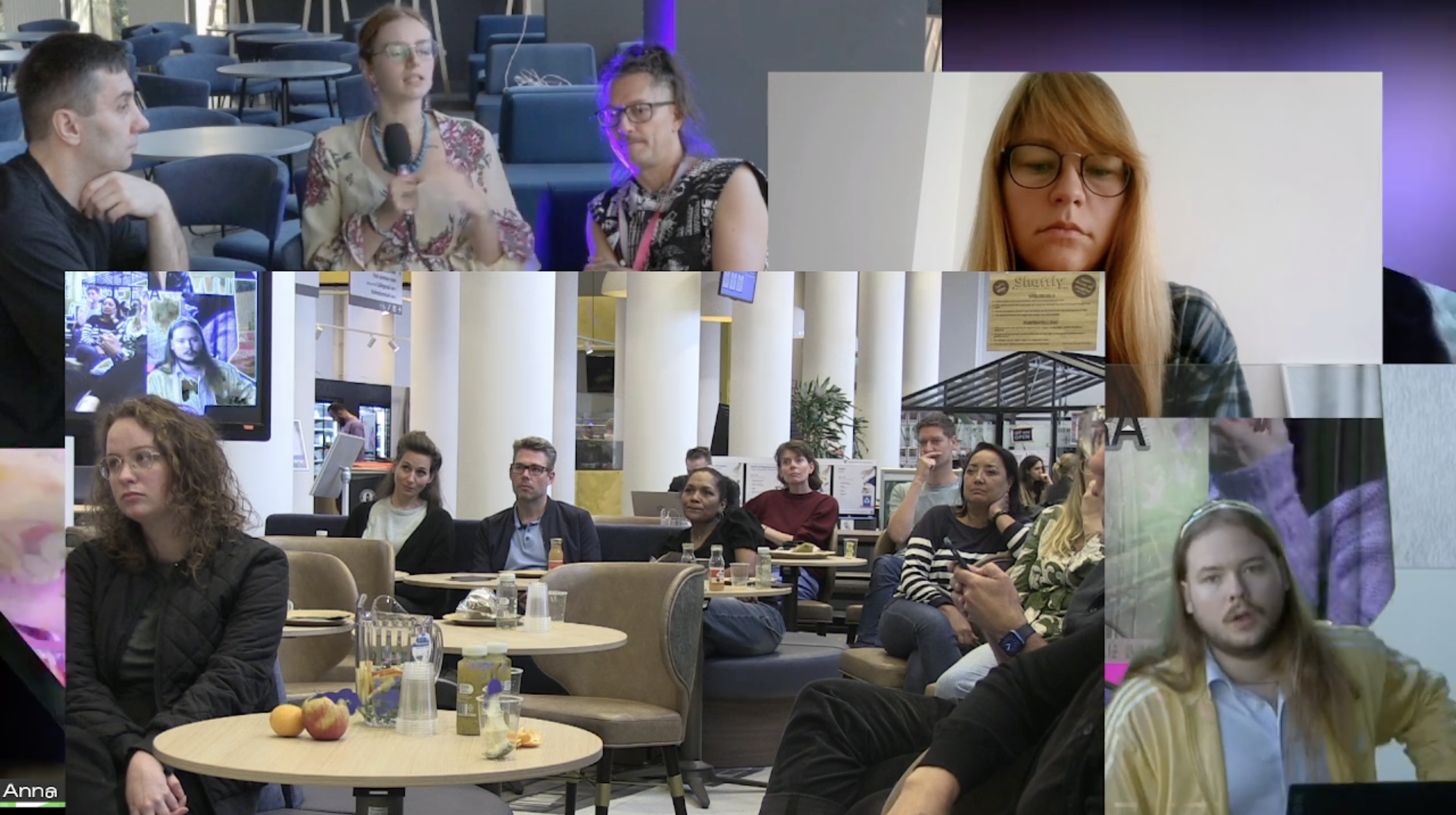
All the speakers of the day had made their intervention, and now the camera turns towards the public. The logic behind the hybrid togetherness concept implies that different layers of spacetime overlap, in a unique and lively mashup of dimensions.
One of the questions addressed to the UKRAiNATV team is about the color pink, what it represents and why is it so recurrent in their aesthetic. Geert Lovink holds now the mic, but he gives the floor to Roman Dziadkiewicz. A good synthesis of the answer can be quoted from the second point of the manifesto, where it is stated “Pink is defiant but in a camp way, cheerful and insubordinate, a hue of hope and rebellion”.
As the connection slowly empties online, so it does offline in the Jakoba Mulderhuis hall. The symposium comes to an end, but it is just the beginning of a long-term collaboration between these diverse intertwined realities.
